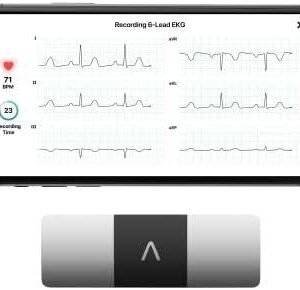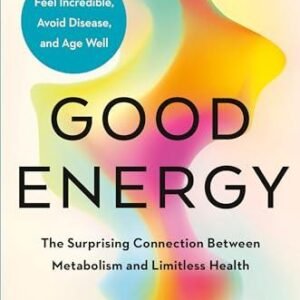In an era where the pursuit of peak athletic performance and cognitive acuity has reached new heights, the intersection of nutrition and training has become an increasingly vital area of study. Among various strategies employed by athletes and fitness enthusiasts alike, dietary supplements have emerged as a focal point of interest, particularly with regards to enhancing mental focus during training sessions. This article endeavors to systematically analyze a range of key supplements that have been posited to boost mental clarity, concentration, and overall cognitive functioning. By examining the underlying mechanisms, benefits, and potential drawbacks of these supplements, we aim to provide a nuanced understanding of how they can be effectively integrated into training regimens. As we delve into the scientific literature surrounding these substances, it becomes imperative to distinguish between anecdotal claims and empirical evidence, ultimately equipping readers with the knowledge to make informed decisions in their pursuit of optimal mental and physical performance.
Table of Contents
- Understanding the Role of Nutritional Supplements in Cognitive Function
- Evaluating Scientific Evidence on Popular Focus-Enhancing Supplements
- Identifying Potential Benefits and Risks of Nootropic Ingredients
- Practical Recommendations for Incorporating Supplements into Training Regimens
- Key Takeaways
Understanding the Role of Nutritional Supplements in Cognitive Function
Nutritional supplements have gained significant attention in recent years for their potential to enhance cognitive function, especially among those seeking to optimize mental performance during training. Various vitamins, minerals, and herbal extracts are believed to support brain health by improving functions such as memory, focus, and overall cognitive clarity. Science has identified several key supplements that may play a role in bolstering mental capacities during intense training sessions. Among these, Omega-3 fatty acids are crucial, as they contribute to neuronal health and are linked to improved cognitive performance. B Vitamins also deserve mention, particularly B6, B9, and B12, which are essential for neurotransmitter synthesis and energy metabolism in the brain.
Additionally, certain herbal supplements have drawn interest in the cognitive enhancement arena. Ginkgo biloba is often cited for its potential to improve memory and cognitive speed, while Rhodiola rosea may help reduce fatigue and enhance resilience during high-stress situations. Analyzing the effectiveness of these supplements requires a careful approach to dosage and timing, as each individual’s response can vary. The following table summarizes prominent supplements that have been studied for their impact on cognitive function:
| Supplement | Potential Benefits | Key Nutrient |
|---|---|---|
| Omega-3 Fatty Acids | Supports memory and cognitive clarity | DHA and EPA |
| B Vitamins | Essential for energy metabolism and neurotransmitter synthesis | B6, B9, B12 |
| Ginkgo Biloba | May enhance memory and cognitive speed | Flavonoids |
| Rhodiola Rosea | Aids in reducing fatigue and improving mental resilience | Rosavins |
Evaluating Scientific Evidence on Popular Focus-Enhancing Supplements
When considering the myriad of supplements claiming to enhance focus, it’s essential to scrutinize the scientific literature surrounding their efficacy. Research varies widely, making it imperative to distinguish between anecdotal evidence and rigorous clinical studies. Some popular supplements, such as caffeine, L-theanine, and Rhodiola rosea, have garnered attention due to their potential cognitive benefits. While caffeine is widely acknowledged for its ability to enhance alertness and focus, the synergistic effects of L-theanine—a compound found in tea—have shown promise in promoting a relaxed yet alert state. Additionally, Rhodiola rosea has been linked to reduced mental fatigue and improved cognitive performance, especially under stress.
Moreover, newer contenders like Lion’s Mane Mushroom and Bacopa Monnieri have begun to attract interest within the scientific community. Preliminary studies suggest that Lion’s Mane may support neurogenesis, potentially enhancing cognitive function over time, while Bacopa Monnieri has been associated with improved memory retention and processing speed, particularly in older adults. To systematically evaluate these supplements, a table summarizing their effectiveness based on recent studies can provide clarity:
| Supplement | Primary Benefit | Supporting Studies |
|---|---|---|
| Caffeine | Increased alertness | Multiple studies demonstrate consistent results |
| L-theanine | Reduces stress while enhancing focus | Research shows improved attention during tasks |
| Rhodiola rosea | Combats mental fatigue | Studies link to enhanced cognition under stress |
| Lion’s Mane Mushroom | Supports neurogenesis | Emerging studies indicate improved cognitive function |
| Bacopa Monnieri | Enhances memory retention | Evidence suggests improved processing speed |
Identifying Potential Benefits and Risks of Nootropic Ingredients
Understanding the impact of nootropic ingredients on cognitive enhancement requires careful consideration of both potential benefits and risks. Some popular nootropics, such as caffeine and L-theanine, are often celebrated for their ability to improve alertness, focus, and mental clarity. Others, like Rhodiola Rosea and Bacopa Monnieri, are noted for their adaptogenic properties, which may reduce stress and enhance emotional resilience. Among the benefits, users frequently report increased productivity during training sessions, enhanced memory retention, and improved overall cognitive function. Nevertheless, it’s essential to recognize that not all nootropic ingredients yield the same effects across different individuals.
Conversely, taking nootropics can come with potential risks that users should be mindful of. Side effects can include insomnia, anxiety, and increased heart rate, particularly with stimulants like caffeine. Furthermore, there is a risk of dependency on certain compounds, as well as possible interactions with medications or underlying health conditions. Before incorporating any nootropic into your regimen, a thorough analysis of individual tolerances and health status is critical. The following table summarizes key nootropic ingredients, their purported benefits, and associated risks for quick reference:
| Nootropic Ingredient | Potential Benefits | Potential Risks |
|---|---|---|
| Caffeine | Increased alertness, improved focus | Insomnia, jitteriness, dependency |
| L-theanine | Calmness, enhanced attention | Low risk; generally safe |
| Rhodiola Rosea | Stress reduction, energy boost | Dizziness, dry mouth |
| Bacopa Monnieri | Memory enhancement, anxiety reduction | Digestive issues, fatigue |
Practical Recommendations for Incorporating Supplements into Training Regimens
To effectively incorporate supplements into your training regimen for enhanced mental focus, it’s crucial to establish a solid foundation. First, consider individual needs and goals; not all supplements will be beneficial for everyone. It’s advisable to start with a basic supplement stack that includes widely acknowledged boosters like omega-3 fatty acids and B-vitamins. Next, monitor your response to these supplements consistently. Keeping a training journal can help track any changes in focus, performance, and overall mental clarity. This data can guide adjustments, ensuring that your supplement use is tailored specifically to your needs.
Furthermore, it’s important to time your supplement intake strategically. For instance, caffeine can be a powerful stimulant, but its efficacy diminishes with excessive use. Aim to consume caffeine approximately 30-60 minutes before your training sessions to maximize its cognitive-enhancing properties. Additionally, consider the following points for optimal incorporation:
- Consult a healthcare professional before beginning any supplementation.
- Stack supplements wisely; combining low-dose caffeine with L-theanine can enhance focus without jitters.
- Stay hydrated; dehydration can impact cognitive function, so water should be part of your regimen.
Key Takeaways
the quest for enhanced mental focus in training is not merely a matter of discipline; it is also a reflection of our understanding of how specific supplements can play a pivotal role in cognitive performance. As we have analyzed throughout this article, the interplay between nutrition and mental acuity is complex, yet the evidence supporting the efficacy of key supplements—such as omega-3 fatty acids, caffeine, and certain nootropics—provides a compelling case for their strategic incorporation into training regimens.
It is crucial for athletes and fitness enthusiasts to approach supplementation with a discerning mindset, acknowledging the scientific underpinnings while also considering individual variability in response to these compounds. The landscape of sports nutrition is constantly evolving, and staying informed about the nutritional strategies that can optimize mental performance is essential for those seeking a competitive edge.
As you contemplate the integration of these supplements into your daily routine, remember that they are not a panacea. Rather, they should complement a foundation built on proper diet, hydration, and restful recovery. By fostering a holistic approach to mental focus, you can create an environment that not only supports physical training but also cultivates the cognitive resilience necessary to excel. Thus, as we advance in our understanding of the biochemical mechanisms that underpin focus and performance, we empower ourselves to make informed choices that resonate through every aspect of our training journeys.





